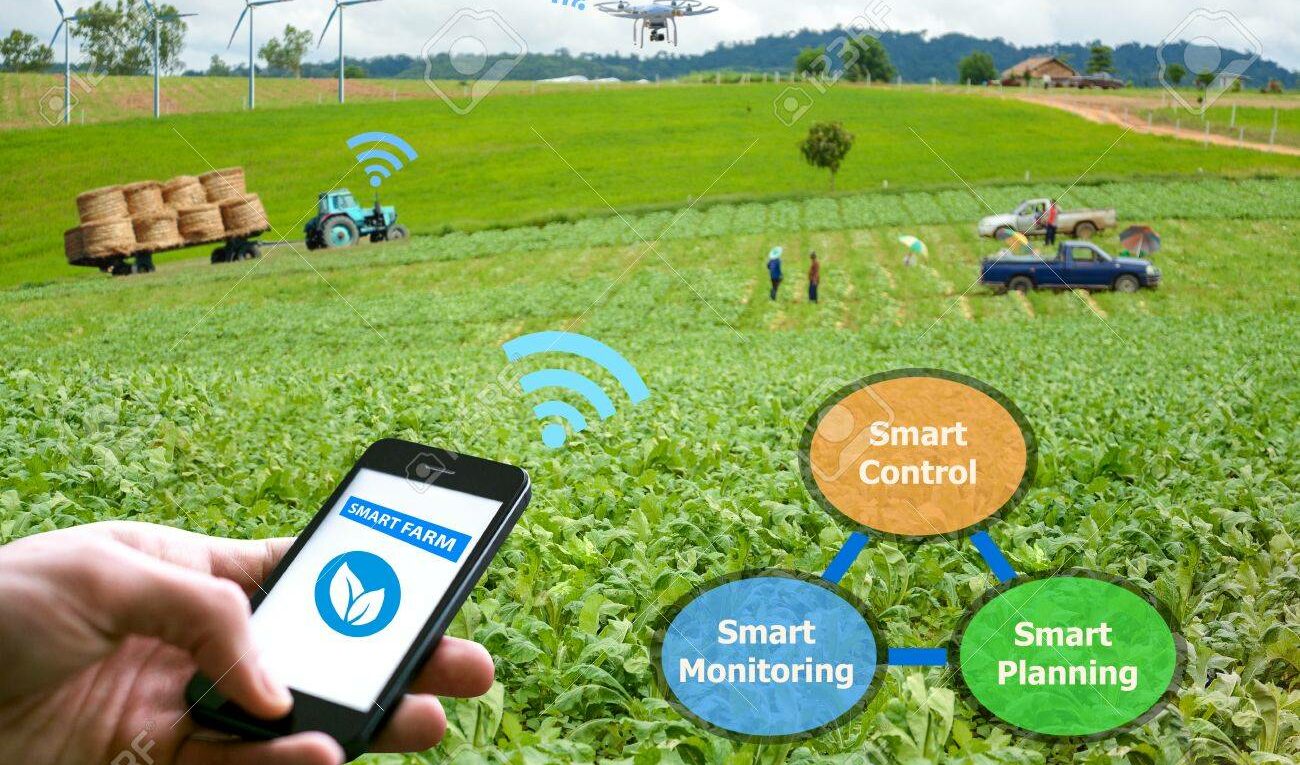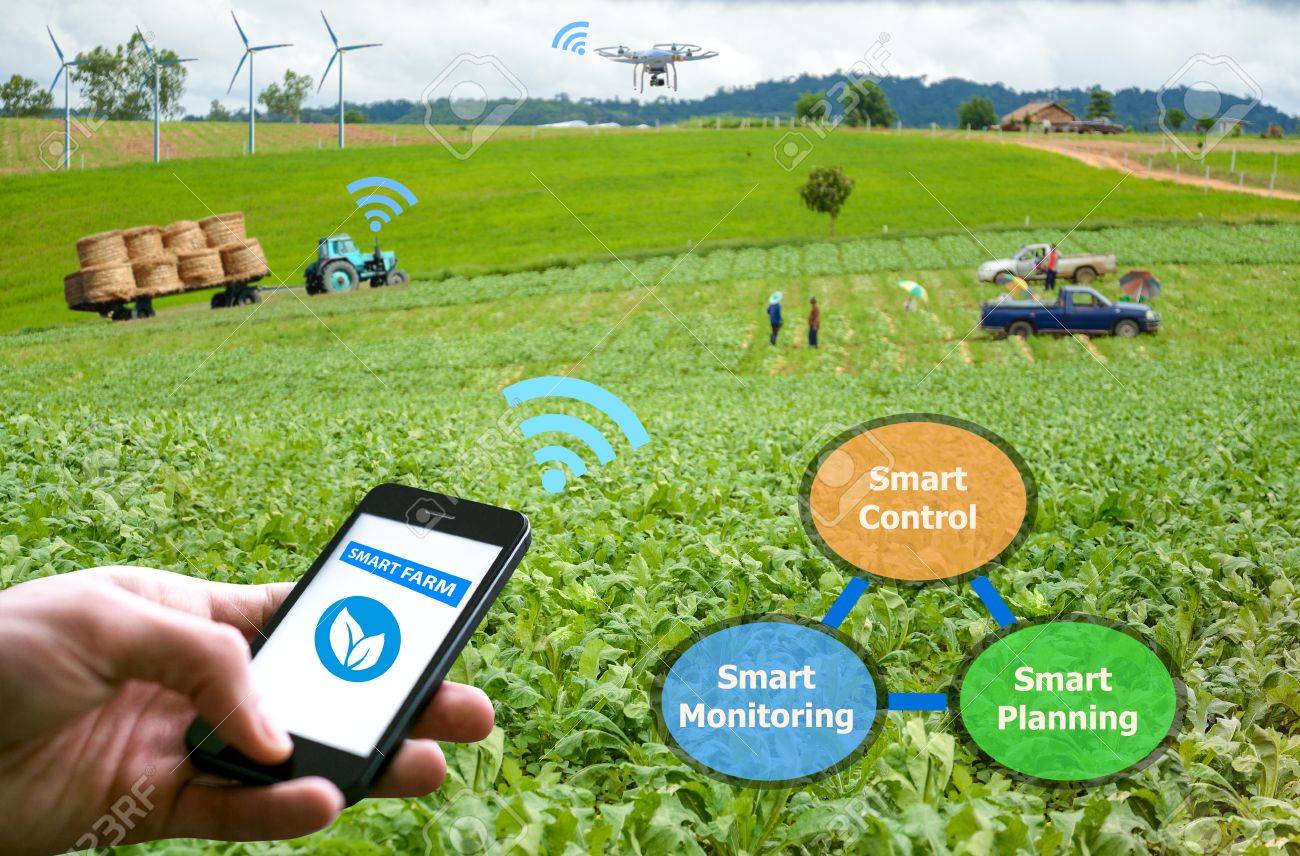Agriculture of the Future: Farm Automation
Technological advances are bringing change to a great number of industries, and the agriculture industry is no exception. Farms are slowly starting to see an increased adoption of practices based on technologies such as artificial intelligence, cloud computing, the Internet of Things (IoT), industrial IoT and robotics.
The adoption of such technologies into the traditional farming practices as we know them is referred to as smart farming or farm automation. One area of growing interest in this domain is impact investing agriculture, which aims to support sustainable and socially responsible farming practices that have a positive environmental and social impact. Let’s have a look at what farm automation is exactly and how it can help farmers tackle a number of challenges in today’s agricultural sector.
What is Farm Automation?
Farm automation specifically focuses on applying data and information technologies for the optimisation of production processes of complex farming systems as well as the quality of the food.
Even though farm automation and smart farming are synonymous, it is important not to confuse them with other emerging terms such as precision farming. While farm automation focuses on applying and accessing data, precision farming focuses on exact measurements between variations in land conditions and livestock.
Farm Automation Technologies
As shown in the image above, there are many different ways in which farm automation technologies can be implemented — ranging from smart collars for cattle to drones, electric autonomous tractors, smart crop-sensors, and so on. To give some perspective on current growth estimates, it is projected that there will be approximately 12M agricultural sensors installed on a global scale by 2023.
Some of the technologies that are commonly used in farm automation these days include:
- The Internet of Things (IoT)
- Drones
- Robotics
- Artificial Intelligence (AI)
- Automation
- Geomatics
- Statistical processes
Why Farm Automation is Important
The agricultural sector — and frankly, the entire world in general — is facing a number of challenges that need to be addressed with an alternative solution. The three main challenges in the agriculture industry today are:
- The world population is expected to reach 9.7B by 2050 — to give some perspective, we are currently at 7.8B. This indirectly means that there will be an increased demand for food and beverages. In fact, it is estimated that there will be a need for a 70% increase in agricultural production to meet the demand in 2050.
- As a direct result of the pandemic, research has shown that consumers are becoming more aware of the healthfulness of their foods and beverages — with 54% caring more about this in 2020 compared to 2010. At the same time, climate change is increasing the awareness of the environmental impact of foods — especially meat — which has brought about major shifts in dietary preferences.
- Labour shortages have been an issue for the agricultural sector for quite some time now. In fact, the European Union saw an outflow of 1.3M national farm workers between 2011 and 2017. On top of that, the pandemic — and Brexit for the UK specifically — has not made it any easier with its travel restrictions as many farmers rely on seasonal migrant workers.
Clearly, these challenges need to be addressed. And one of the most promising ways to do so is through the adoption of smart farming practices — farm automation.
The Benefits of Farm Automation
To clarify why farm automation can be the answer to the challenges managed above — and many more — we will now briefly explain some of the main benefits of farm automation.
1. Water conversation
With the help of soil and water sensors, water usage can be optimised.
2. Reduced operational costs
With the help of automation, farmers need to use less resources and are less prone to human error. This helps cut down their overall costs.
3. Increased food quality
With the help of data analysis, farmers can adjust their production processes for improved food quality.
4. Improved livestock farming
With the help of GPS tracking and smart sensors, farmers can easily manage their livestock’s location and health. Checkout SeeworldGPS for smart GPS tracking for farm equipment.
5. Reduced environmental footprint
Farm automation supports farm conservation in many ways — think of land and water use — which all contribute to a lower environmental footprint.
6. Accurate field evaluation
By tracking production rates, farmers are able to accurately predict future crop yield.
7. Remote equipment monitoring
With the help of the IoT, farmers can make real-time decisions about their crops, livestock, and equipment from anywhere in the world. You can also check Real Industries Ltd. that has to offer for livestock equipment and products.
Looking at the benefits mentioned above, it is without a doubt that farm automation can help farmers — and the entire agriculture industry for that matter — tackle overpopulation, sustainability demands, and labour shortages. In fact, the global smart agriculture market is projected to reach €21.5B by 2027 — that is up from €10.1B in 2019. It will be interesting to see how these advancements in farming technology will progress in the future.
For more insights into farm automation, please visit Meili Robots’s original article: Smart Farming: How Automation Is Shaping the Future of Agriculture.



3 thoughts on “Agriculture of the Future: Farm Automation”